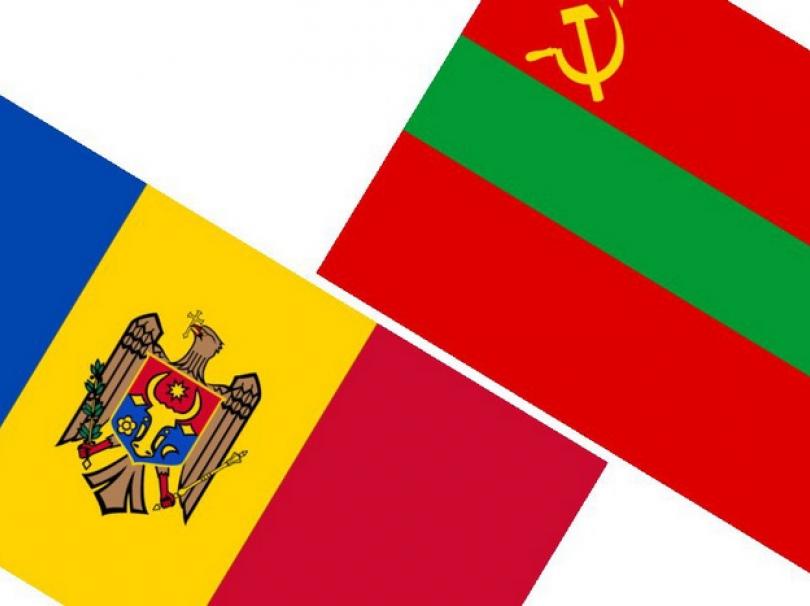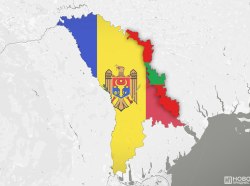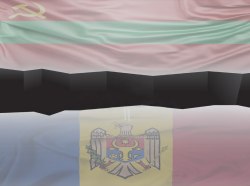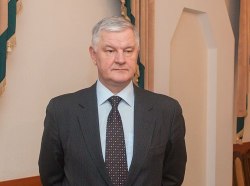The beginning of 2016 has not become inspiring, upon which many participants of the negotiation process on a Moldovan-Pridnestrovian settlement set their hopes. On contrary, it has contributed more reasons for rather difficult thoughts about the future and prospects of the negotiation process between Pridnestrovie and Moldova. Moldova's stance on its cooperation with Pridnestrovie at different levels has remained unchanged in the past months and may be defined as «unavailability for cooperation». Moldovan representatives for the most part either ignore Pridnestrovie's requests or just refuse to meet, indirectly referring to the domestic instability, which in fact has nothing to do with Moldovan-Pridnestrovian relations.
It is understood that one does not have to search very widely for answers to the traditional questions «Who is to blame?» and «What to do?» — Pridnestrovie has never refused to have a dialogue, and even for a person inexperienced in niceties and realities of the relations between the PMR and Moldova it becomes evident that the Pridnestrovian side is a priori more interested in negotiations than Moldova. For Pridnestrovie a settlement with Moldova is a matter of survival as an independent state; for the Moldovan society, as well as its elite, the Pridnestrovian issue is not even among top ten pressing problems, as testified by unbiased sociology. Moldova's ex-premier Valeriu Strelet admitted in public, for instance, that the country's leadership did not have any strategy for settling the Pridnestrovian conflict.
It is clear that with such a spectrum of priorities and amid very busy domestic agenda, the absence of negotiations since the autumn of 2015 is unlikely to be Moldova's top concern. Thus, answering to the question «What to do?» is even simpler — to continue the negotiation process at all levels, comply with undertaken agreements, keep away from exerting pressure … It is evident that this formula is too simple for Moldova to accept it. So, looking back at the beginning of 2016, we should state that Moldova has been acting the wrong way, further strengthening its coercive measures against Pridnestrovie. The Pridnestrovian citizens that possess Russian, Ukrainian and other nationalities and have to travel via Kishinev airport (male Russian citizens are simply not admitted to Ukraine) have been subjected to thorough examinations, threats, psychological pressure and other provocative actions by the Moldovan border police. Such practices, infringing not only negotiation agreements — the Protocol agreement on certain aspects of freedom of movement
Besides aiming at general destabilisation of the situation and aggravation of Pridnestrovie's socio-economic situation, Moldovan usual «surprises» also have a political and diplomatic dimension, which has become especially evident in recent years. The dialogue between Moldova and Pridnestrovie, when it is still possible, often takes place in «a state of emergency». In other words, primary issues on today's agenda are new restrictions imposed by Moldova, as was the case with Moldova's ban on Pridnestrovie-registered cars crossing the Moldovan-Ukrainian border. This measure was first unilaterally imposed by Moldova and then lifted. Meanwhile, negotiators and experts from the both sides worked for several months to solve this problem, although they could focus on more complicated and pressing issues. In the end, it has to be admitted that the Republic of Moldova accumulates coercive methods against Pridnestrovie one by one and is deliberately reducing the situation to an absurdity, to the removal of their own obstacles instead of constructively and persistently following the agenda.
It is important to understand what are we dealing with — Moldova's chronicle non-negotiability, careless irresponsibility or deliberate actions to discredit the international negotiation format? As practice shows, Moldova is quite capable of reasonably compromising on some issues, as was the case with motor third party liability insurance, which is why this is not about its inability to negotiate. Irresponsibility is not a key factor either because it means that, put simply, agreements are infringed sporadically due to inability or failure to comply with them or ensure conditions for their functioning. But when it refers to a demonstrative, defiant and general denunciation of undertaken commitments and a refusal to have a dialogue, it is high time we call it a «malicious intent». Here is a striking example: the 5+2 official talks have not been held since the middle of 2014 due to active criminal prosecution of Pridnestorvian citizens, including public officials and businessmen, on politically motivated charges in Moldova. Since then the Moldovan side, realising its responsibility for a recurrent slowdown of the Permanent Conference, has not taken any significant steps to solve the issue; moreover, a number of criminal cases has amounted to 200.
It is peculiar that over the past year Moldova's restrictive measures have assumed rather demonstrative configurations — their focus has shifted to the social sphere. In other words, repressive measures are to greater extent aimed against the country's population, at worsening Pridnestrovie's social environment, at reducing living standards. Restrictions have assumed the form of direct psychological pressure. The aim of such actions is to discredit the negotiation process, present the current negotiation structure as ineffective and meaningless and, in the end, disrupt its legitimacy and significance in people's opinion. It seems reasonable to conjecture that Moldova is purposefully destructing the formula of a peaceful settlement of the Pridnestrovian conflict. The same measures have long been taken against its another component — a Russia-led peacekeeping operation. Against this background, it may seem a striking coincidence that alongside Moldova's actions, Ukraine is constantly taking steps that throw doubt upon its role as a guarantor in the negotiations, which also affects the stability of the current negotiation structure.
Thus, having reasonably assumed that both Moldova and Ukraine of their own will or at some foreign suggestions adopted a policy of breaking the settlement format, it should be stated the safety of the peacekeeping structure is under threat. If the current negotiation mechanism, including the Permanent Conference, loses its efficiency, very negative implications may arise. First of all, the international structure, though inefficient at times, will disappear as it is, which is sure to untie the hands of some negotiation partners and allow them to impose new restrictions on Pridnestrovie, this time without looking back at foreign participants and undertaken commitments. In this way, the cooperation of the conflicting sides will be almost at once transformed into a confrontation and an exchange of sanctions. Under such circumstances turbulence will further aggravate and may lead to a total escalation of the conflict. And this, in turn, will be a tough test for the existing peacekeeping operation led by Russia as the confrontation between Pridnestrovie and Moldova will considerably exacerbate the social situation and may provoke rather dangerous armed incidents.
It is understood that such developments will be responded by international partners, who are certain to make significant efforts to prevent the conflict's escalation and maintain peace. At the same time, the international dialogue on a conflict settlement, its continuity and basic agreements will be dealt an irreparable blow.
It is evident that at the present stage Pridnestrovie's position looks like «a voice crying in the wilderness». In this connection, all international participants of the current format will have to do their best to retain its configuration and prevent Moldova from unilaterally «torpedoing» the negotiations. In other words, the task is to set a diagnosis and keep the illness from reaching the stage of «uncontrolled consequences».








